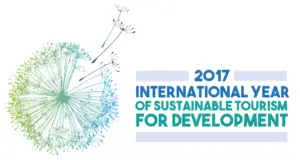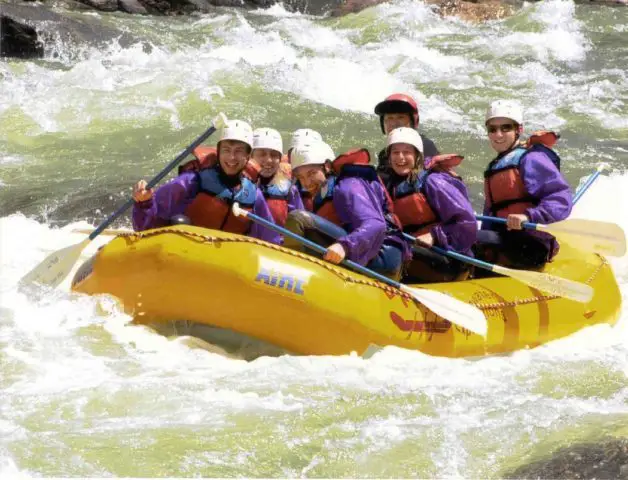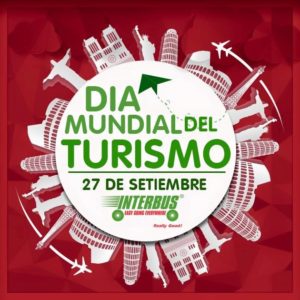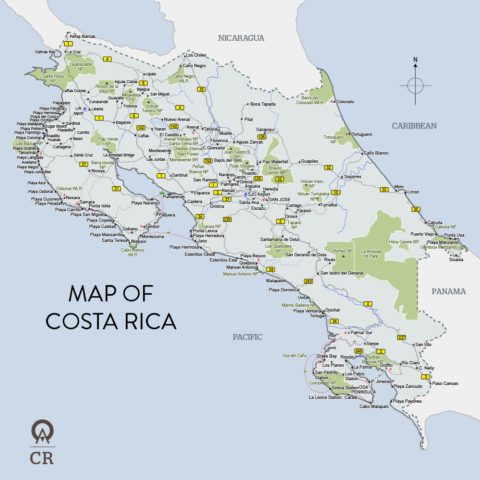World Tourism Day has been celebrated since 1980 on September 27th, the day in which the statutes of the United Nations World Tourism Organization (UNWTO) entered into force. Since the UNWTO declared 2017 the “International Year of Sustainable Tourism Development”, this year’s World Tourism Day 2017 on September 27th also promotes sustainable tourism in a great variety of forms.

Proudly speaking, very few countries can equal Costa Rica in terms of being a world leader in different areas of tourism, especially ecotourism as a sustainable tourism activity.
In this regard, ecotourism is often seen as an outstanding means for promoting sustainable development in developing countries. Many others consider ecotourism as a viable way to protect the natural environment by creating social and economic benefits for local communities. That is why it is currently the fastest growing sector of the global tourism activity.
But, on the other hand, international tourism has increased exponentially over the past 30 years. In exchange, sustainable tourism has become an alternative activity in most developed and even newly industrialized countries.
At the same time, tourist movements have spread geographically to reach, practically, all countries of the world, becoming for many of them an important economic sector in terms of income generation, foreign exchange earnings, and employment creation.
Now, at this point, the logical question emerges: what factors make tourism be a sustainable activity? The following principles constitute key factors for making tourism be truly a sustainable activity for integral development:

Maintaining biodiversity. Maintaining and promoting natural, social, and cultural diversity is essential for long-term sustainable tourism, and creates a resilient base for the industry.
Involving local communities. The full involvement of local communities in the tourism sector not only benefits them and the environment but also improves the quality of the tourism project.
Reducing over-consumption and waste. Reduction of over-consumption and waste avoids the costs of restoring long-term environmental damage and contributes to the quality of tourism.
Supporting local economies. Tourism that supports a wide range of local economic activities and which takes environmental costs and values into account, both protects these economies and avoids environmental damage.
Integrating tourism into planning. Tourism development which is integrated into a national and local strategic planning framework and which undertakes environmental impact assessments, increase the long-term viability of tourism.
Undertaking research. Ongoing research and monitoring by the industry by using effective data collection and analysis are essential to help solve problems and bring benefits to destinations, the industry, and consumers.
Training staff. Staff training which integrates sustainable tourism into work practices, along with recruitment of personnel at all levels, improves the quality of the tourism product.
Using resources rationally. The conservation and rational use of resources -from the natural, social, cultural point of view- is crucial and makes long-term business sense.
Marketing tourism responsibly. Marketing that provides tourists with full and responsible information increases respect for the natural, social, and cultural environments of destination areas and enhances customer satisfaction.
When interpreting these sets of principles, we can notice the emphasis given on sustainable development strategies.

Indeed, in 1995, the World Tourism Organization (WTO) stated the meaning of sustainable tourism in Agenda 21 for the Travel and Tourism activity: “Sustainable tourism development meets the needs of present tourists and host regions while protecting and enhancing the opportunity for the future. It is envisaged as leading to management of all resources in such a way that economic, social, and aesthetic needs can be fulfilled while maintaining cultural integrity, essential ecological processes, biological diversity, and life support systems”.
In other sense, ecotourism -in its purest form- is conceived both as sustainable development and sustainable tourism. The most important thing is to think of sustainability not only as a goal for ecotourism but perhaps, and more importantly, as the means of achieving that goal. Since sustainability is somehow difficult to measure, it is more important to emphasize sustainability as the intention and not necessarily the outcome.
In this respect, Costa Rica is so unique due to the scale of its ecotourism activity and its maturity when compared to other developing countries. Over the years, Costa Rica has earned a well-deserved reputation as the top ecotourism destination in the world. In some way, it is considered a kind of ecotourism’s pop star by many international tourists.

In our opinion, one of the main reasons why Costa Rica has become such a world’s destination for ecotourism is because it has all of the right key factors. As an overview, Costa Rica has excellent national parks, a stable democratic government with no army, a pleasant climate, and friendly people. It also has one of the highest standards of living, the largest middle class, the best public health care system, the best public education through the university level, and the highest literacy rate in Latin America.
Do you want to be told any more reasons?
